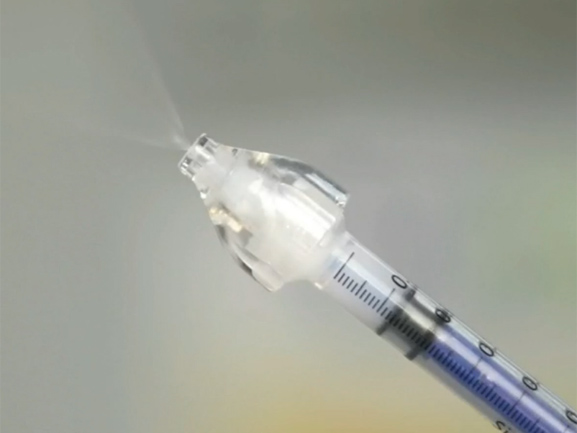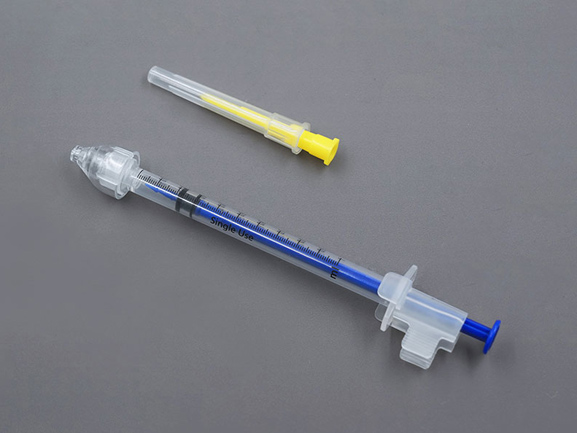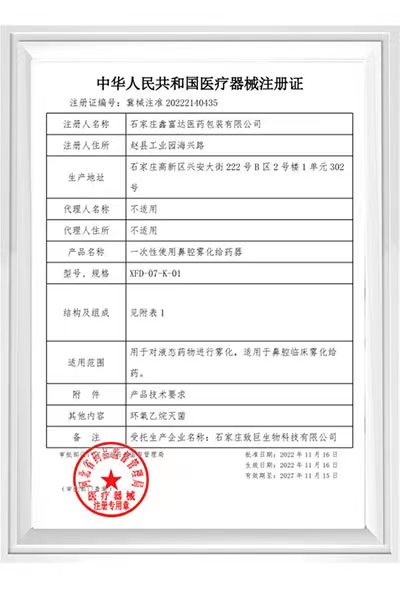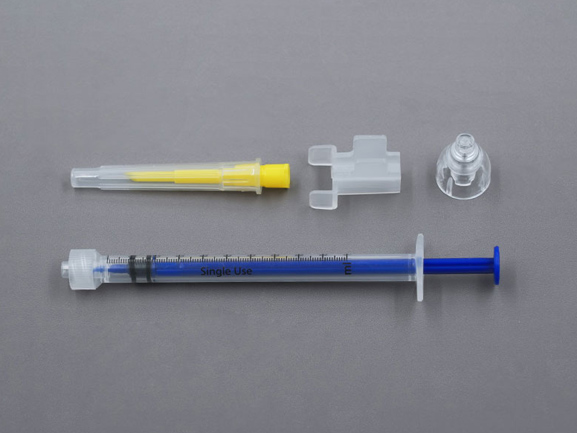The emergence of new drugs has led to changes in drug delivery methods. In addition to our common oral drug delivery and injection drug delivery, Intranasal Atomization Device is becoming the choice of many drugs. What is the design principle of the Intranasal Atomization Device as a delivery device for these drugs?
The Intranasal Atomization Device is composed of a syringe, a nasal spray device, a push rod and a dose limiter. After extracting the drug, it converts the liquid drug into mist particles through the nasal spray device, and then acts on specific parts or the whole body through the absorption of the nasal mucosa . This method of administration is rapid, safe, effective and painless, avoiding the risk of needle sticks. The nebulized drug can be directly absorbed into the blood circulation through the nasal mucosa, the preparation time is short, the effect is rapid, and the administration process does not require aseptic operation, which is easier to be accepted by patients.
Disposable Intranasal Atomization Device


Currently, this mode of administration is used for the delivery of various types of drugs such as chemical drugs, liposomes, peptides, and vaccines. Intranasal administration can avoid drug degradation, gastrointestinal irritation, first-pass effect, and achieve brain targeting, etc., and it has attracted increasing attention. Intranasal cell administration for brain disease cell therapy is currently being studied. A new way of cell drug delivery.

Medical device registration certificate
With the rapid development of various technologies, the Intranasal Atomization Device has undoubtedly become a new type of drug delivery method and has been accepted by the public. With the continuous advancement of science and technology, we can look forward to what new drug delivery methods will appear in the future.

没有评论:
发表评论